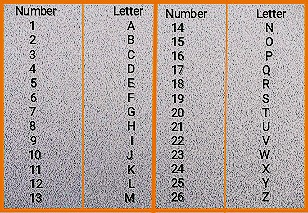How to Give Online Homework Assignment Tips for Students?

In the wake of the Coronavirus epidemic, here are some important tips for online homework assignments for students. Students will benefit a lot if they read these tips correctly. When the Coronavirus epidemic hit, many teachers had to quickly get lost and adopt a digital learning platform. Even after the lockdown elevator and teachers return to the classroom, it seems that online homework assignments are here to stay. In fact, does anyone expect the global e-learning market to surpass $243 billion by 2022.
Of course, a significant part of this new approach to teaching involves scheduling online homework assignments. The good news is that online homework has been shown to increase students' achievement, and if performed effectively, online homework assignments can do more than just teach-they can motivate students even more.
The following tips will help you get the most out of your online homework assignments.
- Ready for The First Online Homework Assignment
- Goals Your Online Homework Assignment
- Picking The Best Homework Service
- Expect Online Homework Assignment Contact
- How to Evaluate Online Homework
- Use Only for Online Homework Reviews
- Get More Out of Online Homework
- Appropriate Amounts of Online Homework
- Solutions Online Homework Assignment
1. Ready for The First Online Homework Assignment
We've told you a lot about online homework assignment support services so far. Hope you are now convinced that we are the right service provider for your course. You can send us your assignment files by filling out the order form. Our sales officers will review your hiring requirements and quote you the price. After paying half, our online homework assignment will start working on it. Rest assured that you will find your solution within the time frame you are giving us. Get our online homework help is always available to assist you with excellent experts.2. Goals Your Online Homework Assignment
It is important to know your motives for managing your online homework assignment. Testing various creative and critical thinking skills will help students expand their knowledge and keep adequate information about emerging trends. You should ask yourself questions as to what you students want to achieve from online homework assignment that will guide you in coping with your task.
You should have a clear answer to this type of question in your online homework assignment and certainly support your goals. If students plan to demonstrate critical thinking, they need to answer questions based on their analysis.
3. Picking The Best Homework Service
Whether or not you have the experience to pay someone to help you with your online homework assignment, it matters that you understand how important the service you have chosen (and the actual person/ tutor) is to Your Education.
Choosing the wrong online homework assignment helper can have a very bad effect on your studies, undermining the whole purpose of hiring them in the first place. Of course, the internet is what it is so there are plenty of service providers out there. It is important to know exactly what to look for (and what not to look for) in order to choose which service to follow.
4. Expect Online Homework Assignment Contact
In addition to setting a goal for each online homework assignment, it is important that you clearly communicate your expectations to your students. Let them know which assignments they need to complete, the format they need to submit, what specific guidelines they need to follow, the completion timeline, and how they will be assessed in each specific assignment.Since students will complete the assignment online, this can sometimes present an additional challenge-quickly spreading confusion about expectations. This is why you need to be an online moderator when giving homework. Take extra care to resolve any potential issues quickly and clearly state your expectations of how students can get your support and feedback on the assignment.
5. How to Evaluate Online Homework
Teachers should know that by giving students online homework assignments they are actually doing their job-informing, educating and shaping students ’minds. The best way to determine the effectiveness of your assignment is to analyze the results of your homework. Are students succeeding? Do they seem to have gotten the idea, or are you aiming to address the trends you need to address?Another way to measure the effectiveness of your online homework assignment is to ask students. Sending them to complete the survey and asking them for honest feedback can help you understand what is working and what improvements may be needed.
6. Use Only for Online Homework Reviews
I never give online homework assignments about anything I have taught my students. The weird thing is, most of your students don't understand the concept well enough to perform on their own, so if you think about it, they'll just practice new skills incorrectly. Not good for anyone. Instead, give your students a review night dose (include skills you've already taught completely) and new skills may have only one or two problems.7. Get More Out of Online Homework
Yes! Don’t just use online homework for….well…..online homework assignments. Use online homework assignments to help you monitor your students’ progress, and see what they still need to work on.

Although I do not check every student’s online homework assignments, I ask them to bring in small groups and if necessary we use it as a learning tool. I keep an eye on everyone’s work and make a mental note of what I notice. It has become a very helpful tool to ensure that all my students are meeting the standards.
8. Appropriate Amounts of Online Homework
Experts agree that the amount and type of online homework assignments should depend on the developmental level of the student. The National PTA and the National Education Association suggest that online homework assignments for children in grades K–2 is most effective when it does not exceed ten to twenty minutes each day. In grades three through six (6), children can benefit from thirty (30) to sixty (60) minutes daily. Junior high and high school students may benefit from more time in online homework assignments and the amount might vary from night to night. These recommendations are consistent with the conclusions reached by the study of the effectiveness of Online Homework Assignments.9. Solutions Online Homework Assignment
Adapting your curriculum to current and real-world situations is essential. Discussing a recent problem with an online homework assignment will engage students to better understand the subject. Many students do not think that what they learn in School and College is relevant to what is happening in their daily lives. You can increase students' engagement by shaping the curriculum around recent research on Coronaviruses.
Online classes have increased since the epidemic began. Students can now manage their online activities and read a lot of information in their course. Online homework assignment will help students gain adequate knowledge about their class.
ONLINE HOMEWORK ASSIGNMENT IS A VALUABLE TOOL THAT CAN ASSIST STUDENTS BY GIVING THEM EXTRA PRACTICE USING COURSE MATERIAL.
ONLINE HOMEWORK ASSIGNMENT IS A VALUABLE TOOL THAT CAN ASSIST STUDENTS BY GIVING THEM EXTRA PRACTICE USING COURSE MATERIAL.
By saving larger text and writing assignments for online homework assignments, you can maximize your class time by conducting lots of lectures and listening activities. Online homework assignments also gives you more material to further evaluate individual student performance so they are very helpful when used properly. After reading this article, if you have any questions or suggestions on the article, you can let us know in the comment below or at this Gmail mrakibmilon2@gmail.com. Thank you for staying with us.
Conclusion
In short, online homework and assignments are homework assigned to the student to complete outside the classroom while assignments are assigned to be completed within a specific course of study. Nevertheless, no matter how beneficial they can be, for most students, homework and assignments are just a huge source of unhappiness and annoyance.(FAQs) - How to Give Online Homework Assignment Tips for Students
What is Homework?Answer: Homework refers to tasks assigned to students by school teachers. They expect students to complete the work during non-school hours. Teachers often assign homework to complete at home so that their students practice the learning material already taught. Their purpose is to reinforce learning and facilitate the mastery of specific skills and competencies.
What is Assignment?
Answer: If you are a student, you may feel that it is not your responsibility to learn by yourself; Rather, it is the teacher's job to teach you. But, a teacher cannot teach students every little point of a particular unit or subject.
Such a spoon-feeding method of imparting knowledge can negatively affect a student's learning ability and academic career. Especially in academic institutions such as colleges or universities, teachers expect students to do some research to grasp untaught concepts and explore the topic on their own instead of teaching everything to students using the lecture method.
Similarities Between Homework and Assignment
Answer:
- Both aim to enhance students' learning skills.
- Teachers or professors hand them over to students.
- Both homework and assignments can be graded.
Answer: Homework online platform helps experts who are highly skilled in their profession and are always ready to help you, they have done so much that they have gained a lot of experience in this task. They are available 24/7, so it won't be a problem if your deadline is near. Students who are not able to complete the assignment due to any reason can talk to the experts and take their help. It will always help you perform well in your classes and get good grades in your academics.























